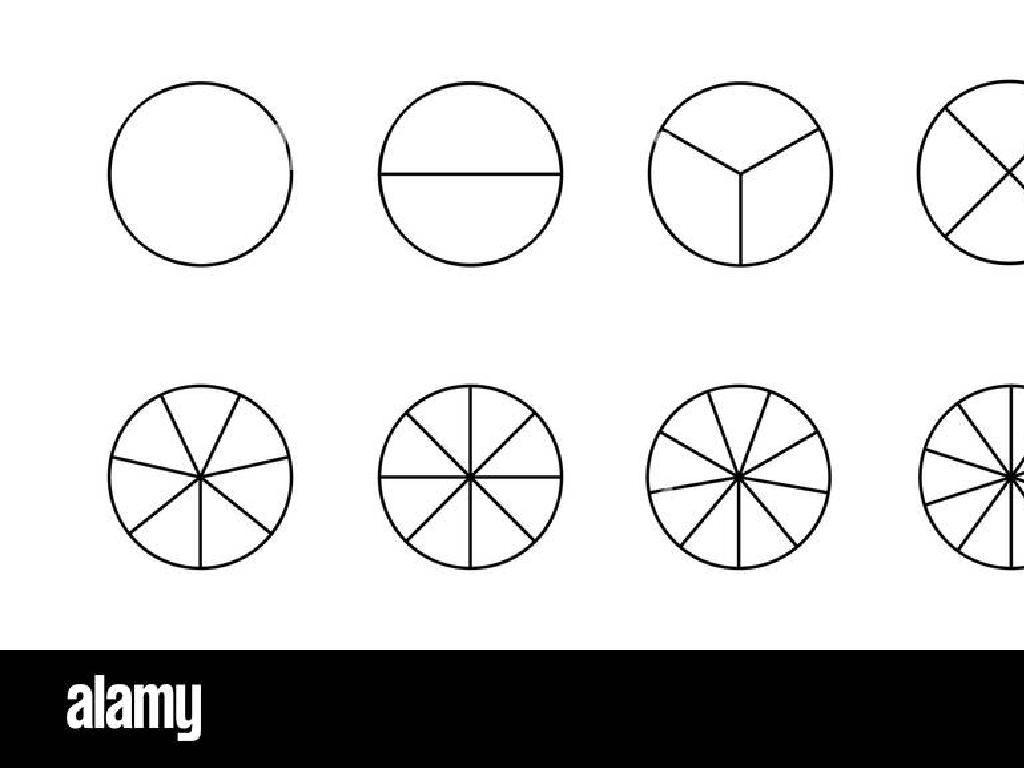Use Words As Clues To The Meanings Of Greek And Latin Roots
Subject: Language arts
Grade: Sixth grade
Topic: Greek And Latin Roots
Please LOG IN to download the presentation. Access is available to registered users only.
View More Content
Unlocking Vocabulary: Greek and Latin Roots
– Discover language building blocks
– Roots: Foundation of many words
– For example, ‘bio’ means life in Greek, as in ‘biology’.
– Roots enhance vocabulary grasp
– Knowing roots helps deduce meanings of new words.
– Significance of Greek and Latin roots
|
This slide introduces the concept of Greek and Latin roots, which are the fundamental elements that form a large portion of the English language. Emphasize that understanding these roots can greatly enhance a student’s ability to understand and learn new vocabulary. For instance, the Greek root ‘bio’ can be found in words like ‘biology’, ‘biography’, and ‘biodegradable’, all relating to life. Encourage students to think of roots as clues to unlock the meanings of complex words. Highlight the importance of these roots in not just English, but also in science, medicine, and other fields. This foundational knowledge will aid them in future vocabulary acquisition and comprehension.
Exploring Word Roots
– What are root words?
– The base part of a word without prefix/suffix
– Roots vs. Prefixes & Suffixes
– Roots form the base, prefixes before, suffixes after
– Common roots and meanings
– ‘bio’ means life, ‘geo’ means earth
– Practice with examples
– Find roots in words: biography, geology
|
Root words are the fundamental building blocks of many words in the English language, especially those derived from Greek and Latin. Understanding roots can help students decipher the meaning of unfamiliar words. It’s crucial to differentiate between roots, which form the word’s core meaning, and prefixes/suffixes, which modify this meaning. Provide examples of common roots such as ‘bio’ (life) and ‘geo’ (earth), and show how they combine with different prefixes and suffixes to form new words. Encourage students to practice by identifying the roots in words like ‘biography’ (writing about life) and ‘geology’ (study of earth). This will enhance their vocabulary and reading comprehension skills.
Exploring Greek Roots in English
– Unveiling Greek roots
– ‘photo’ and ‘graph’ meanings
– ‘photo’ means light, ‘graph’ means write
– Words with Greek roots
– ‘photograph’: light drawing, ‘telegraph’: distant writing, ‘biography’: life writing
– Significance of Greek roots
|
This slide introduces students to the concept of Greek roots, which are the building blocks of many English words. By understanding these roots, students can decipher the meanings of unfamiliar words. Start with the root ‘photo,’ which means light, and ‘graph,’ which means write. Show how these roots combine with other words or roots to form new words like ‘photograph’ (drawing with light), ‘telegraph’ (writing from afar), and ‘biography’ (writing about someone’s life). Emphasize the importance of these roots in understanding the English language and enhancing vocabulary. Encourage students to look for Greek roots in other words they know and to use this knowledge as a tool for decoding new words they encounter in their reading.
Unlocking Word Meanings with Latin Roots
– What are Latin roots?
– Latin roots are the building blocks of many English words.
– ‘spect’ and ‘port’ root examples
– ‘spect’ means to look, ‘port’ means to carry.
– Discover words: ‘inspect’, ‘spectator’
– ‘Inspect’ means to look over, ‘spectator’ is one who watches.
– ‘transport’ and its root meaning
– ‘Transport’ means to carry from one place to another.
|
This slide introduces students to the concept of Latin roots, which are foundational elements in English vocabulary that come from Latin. By understanding these roots, students can begin to decipher the meaning of unfamiliar words. The root ‘spect’ is found in words like ‘inspect’, where it means to look over something carefully, and ‘spectator’, a person who watches an event. Similarly, ‘port’ is seen in ‘transport’, meaning to carry something from one place to another. Encourage students to think of other words they know that might contain these roots, and discuss how the meaning of the root fits into the meaning of the whole word.
Decoding Words with Greek and Latin Roots
– Roots as keys to vocabulary
– Roots are word parts that hold meaning, like ‘micro’ means small.
– Strategies for new words
– Use roots to unlock the meaning of unfamiliar words you encounter.
– Practice with ‘microscope’
– ‘Microscope’: ‘micro’ (small) + ‘scope’ (look) = look at small things.
– Explore ‘geology’, ‘aquarium’
– ‘Geology’: ‘geo’ (earth) + ‘logy’ (study) = study of earth. ‘Aquarium’: ‘aqua’ (water) + ‘rium’ (place) = place for water life.
|
This slide introduces students to the concept of using Greek and Latin roots to decode unfamiliar words, enhancing their vocabulary. By understanding common roots, students can piece together the meanings of new words, which is a valuable skill for reading comprehension. Start by explaining what roots are and how they form the foundation of many English words. Provide strategies such as looking for familiar root segments within new words and using context clues. Use ‘microscope’, ‘geology’, and ‘aquarium’ as examples to practice this skill, breaking down each word into its root components and explaining their combined meanings. Encourage students to apply these strategies to other new words they encounter in their reading.
Activity: Create Your Root Word Tree
– Start with a root on the trunk
– Branch out with derived words
– Words like ‘telephone’ or ‘photograph’ for the root ‘tele’ (far) and ‘photo’ (light)
– Define words on the leaves
– Write simple definitions that show the root’s meaning
– Decorate your tree creatively
|
This activity is designed to help students visually and interactively understand the concept of Greek and Latin roots in words. By choosing a root and finding words that derive from it, students will see the connections between different words and their meanings. Encourage them to select roots that are commonly found in English words. Provide examples of roots and derived words to guide them. For instance, ‘astro’ could lead to ‘astronaut’ and ‘astronomy’. The definitions on the leaves should be brief and clearly linked to the root’s meaning. This will reinforce their understanding of how roots give clues to word meanings. Allow students to be creative with their trees, using colors and designs to make the activity engaging.
Class Activity: Root Word Hunt
– Pair up for a root search
– Use books/articles for examples
– Record words and meanings
– Note the root and what you think it means
– Share discoveries with class
– Discuss how roots help understand words
|
This activity is designed to engage students in exploring the influence of Greek and Latin roots on the English language. By working in pairs, students will utilize classroom resources to identify words that contain Greek or Latin roots. They should write down these words along with their inferred meanings based on the context and the root. After the hunt, students will present their findings to the class, fostering a collaborative learning environment. As a teacher, facilitate the activity by providing guidance on how to identify roots and offer examples. Encourage students to discuss how recognizing these roots can aid in expanding their vocabulary and understanding of language structure. Possible variations of the activity could include focusing on specific roots, using digital resources, or creating a classroom root word wall.
Conclusion: The Power of Roots
– Recap Greek & Latin roots importance
– Understanding roots enhances vocabulary
– Review today’s roots and examples
– Revisit roots like ‘bio’ (life) and ‘aqua’ (water)
– Practice roots at home
– Use a roots diary or flashcards daily
– Keep exploring new roots
|
As we wrap up today’s lesson, emphasize the value of understanding Greek and Latin roots in mastering the English language. It’s a tool that can help students deduce the meaning of unfamiliar words and expand their vocabulary. Go over the roots discussed in class, such as ‘bio’ meaning life, found in biology, or ‘aqua’ meaning water, seen in aquarium. Encourage students to practice at home by keeping a diary of new roots they come across or using flashcards to study. Remind them that learning is an ongoing process, and they should be on the lookout for new roots in their everyday reading. This will not only help them in Language Arts but also in other subjects like science and social studies.






